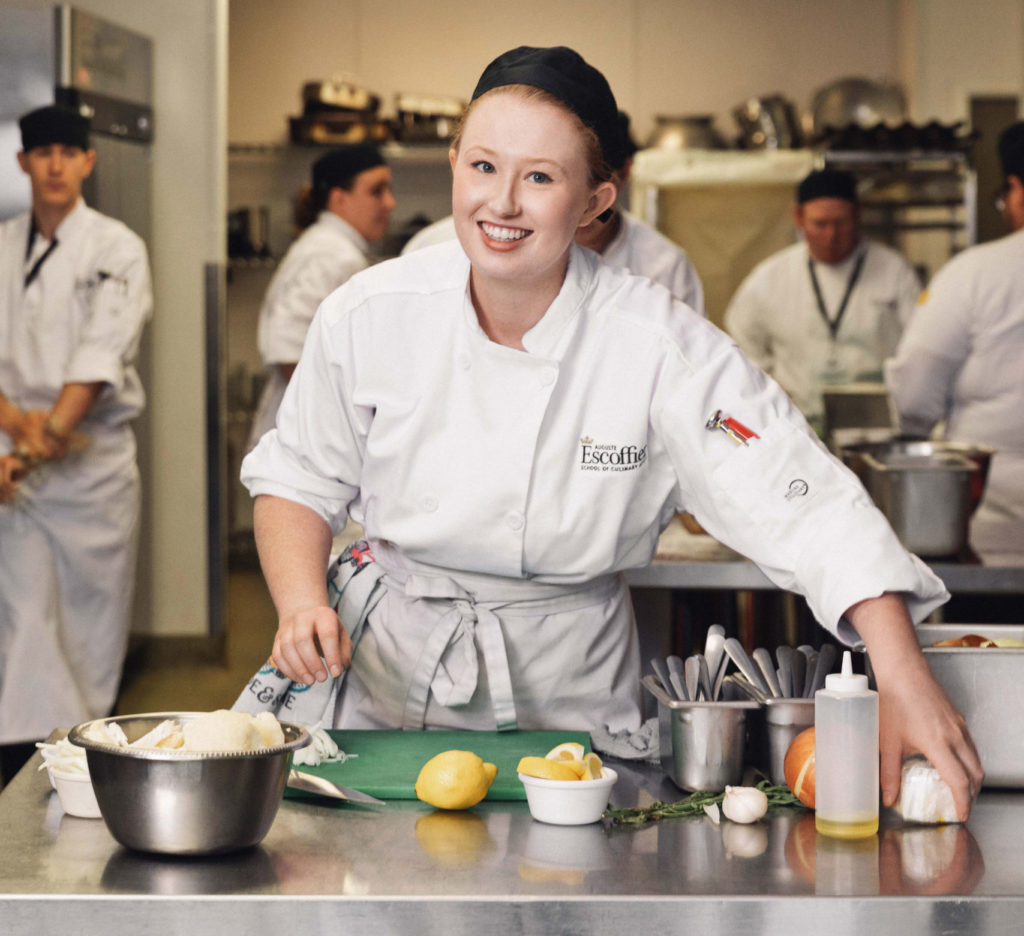May 1st is National College Decision Day! This is the date by which many high school seniors make their choice about where to attend a traditional college or university in the fall.
With college prices higher than ever and increased demand for vocational careers, many students are choosing to attend a faster, more focused program that will help them prepare for a new career with a smaller time and financial investment.
Here’s why an associate degree or diploma may be the right choice for many high school seniors.
Diploma and Associate Degree Programs Are Significantly Less Expensive Than Most 4-Year Colleges
Education after high school comes with a price tag. And for many students who will be paying their own way, keeping those costs low is vital.
A 30-week diploma program or 60-week associate degree program will naturally be less expensive than a 4-year degree program, if only because it’s shorter!
Total Tuition Costs for Various Bachelor’s Degrees vs a Typical Associate Degree 1
When financial aid and scholarships are taken into account, the lower total cost of a diploma or associate degree puts education within reach for many people. If students have little saved for college, or if they hope to keep student loans to a minimum, they may find that a vocational program is a great option.
“You have to be willing to invest in yourself. It is cost effective, and the connections you make with your Chef Instructors; they invest in you back.”
Wyl Lima, Culinary Arts Graduate and Sous Chef, Temporis
Finish a Program Sooner And Jump Into a New Career
High school students choosing a vocational path are often more intentional about their career passions. These students can be uniquely positioned to start their careers with a shorter program. And with online options, students can even work in their professions while attending school.
Escoffier’s programs last between 30 and 60 weeks. Students who go this route can have that degree or diploma completed in a fraction of the time as those who go to a 4-year school. By the time college students graduate, they could already be two years into a career, and have both work and life experience that others their age don’t.

Flexible Study Schedules and Living Anywhere
Many students at 4-year schools live on campus — especially if they’re just out of high school. In fact, many colleges actually require freshman and sophomore students to live on campus — adding another cost.
Also, getting classes scheduled in a tight block is a challenge at a 4-year college, especially for freshmen. They may end up with a 9:00 AM class followed by a five-hour break, and then another class at 4:00 PM. This can make it difficult for students to have jobs or meet other obligations.
In an associate degree or a diploma program, students may find it easier to manage their schedules. At Escoffier, on-campus students are in class for a solid 6-hour block, which gives them plenty of time after class to complete assignments and work at a part-time job.
Escoffier’s online programs offer even more flexibility! Students can complete their coursework at a time convenient for them, as long as they meet the curriculum’s pre-set deadlines. If students have to work during their time in school, this can give them unparalleled leeway to fit both work and school into their schedules.

Lower Cost + Higher Earning Potential = A Better Return on Investment
Wondering if culinary school is “worth it” financially? This is a major question for many students. Some people argue that it’s not necessary to get a culinary degree. Culinary professionals can work their way through the ranks of a kitchen instead.
On the other hand, many culinary school graduates find that there is a financial return on their investment in their education. One study showed that hiring managers as a group pay an average of 15% more in the Culinary Arts and 29% more in the Pastry Arts.2
Over the course of a career, that increased salary can add up to impressive dollars that could more than pay for the initial investment in a culinary education. With the much higher cost of a 4-year degree, that return would have to be much higher to get the same financial benefit.
Diploma and Associate Degree Programs Trim the Fat
Contrary to what many might think, college students at a 4-year school don’t usually dive right into their majors. Many don’t even choose a major until the end of their sophomore year. In the meantime, they’ll take general education classes and electives to either start completing prerequisites for later classes, or to explore possible majors.
Vocational-focused programs allow students the opportunity to immediately concentrate their education and training on their field of study.
“My favorite part of my program has been jumping right into the kitchen and foundations and learning new techniques, new dishes, new presentations to present — and finding my style of cooking.”
Cooper Weber, Culinary Arts Graduate
In an associate degree program at a dedicated vocational school like Escoffier, there are still some general education requirements. But students still need fewer general education credit hours than they would for a bachelor’s degree. But since all students at Escoffier are studying culinary arts, pastry arts, or food and beverage operations, those courses are tailored to their respective fields of study. Instead of a generic algebra class, students study math and accounting as it applies to the foodservice industry. Their science requirement is met by studying nutrition. And their writing course is specific to the hospitality industry.
This means courses are industry-focused at Escoffier.

Take Control of Your Future!
4-year college isn’t for everyone. Some high school seniors forget that there is a great option in between an expensive, lengthy 4-year program and no higher education at all — and it can be a shorter diploma program or associate degree at a vocational-focused school.
If you know that a future in food is for you, then culinary school could be the answer. Take your future into your own hands on this National College Decision Day!
For more information about getting a culinary education, try these articles next:
- What Every High School Student Should Know About Culinary School
- How Much Does Culinary School Cost and How Can You Pay For It?
- Is a Culinary Degree or Diploma Worth It?
1 Source: https://www.valuepenguin.com/student-loans/average-cost-of-college. “Total Tuition & Fees” includes “books and supplies” and “other expenses” but excludes “room and board” and “transportation” from the source table.
2 Source: Oliver Wyman Culinary Survey 2020

 “You have to be willing to invest in yourself. It is cost effective, and the connections you make with your Chef Instructors; they invest in you back.”
“You have to be willing to invest in yourself. It is cost effective, and the connections you make with your Chef Instructors; they invest in you back.”